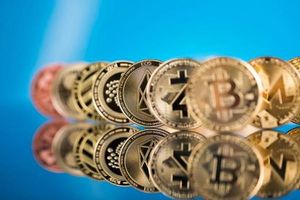Recently, the nomination of Pam Bondi as U.S. Attorney General has raised eyebrows and ignited discussions among political commentators and the public alike. Bondi, who served as Florida's Attorney General from 2011 to 2019, is closely associated with former President Donald Trump, and her selection has drawn intense scrutiny.
Former FBI official Frank Figliuzzi highlighted her nomination during a recent MSNBC segment, calling it "disturbing," particularly when compared to ex-Representative Matt Gaetz, who withdrew his name following serious allegations. Figliuzzi pointed out the troubling nature of selecting Bondi for a role typically reserved for seasoned legal minds.
Critics are quick to remind the public of Bondi's controversial track record. Elie Mystal, writing for The Nation, reinforced this notion by arguing she maintains "a provably worse record than Gaetz on matters within the Department of Justice’s remit." Mystal indicated, though, he would still prefer her as AG over many other potential nominees, primarily due to her lack of ties to the influential Leonard Leo, known for orchestrations within the Federalist Society.
While her legal qualifications as former Attorney General of Florida appear valid at first glance, Bondi’s history includes questionable decisions such as her failure to launch formal investigations against the Trump University scandal, allegedly influenced by financial contributions from Trump himself. Critics say this compromise of integrity raises ethical concerns about her fitness for the position. "Trump didn’t go with any of the guys who earned their stripes from Leo," Mystal noted, emphasizing Trump's tendency to select individuals who have proven loyalty to him over more conventional candidates.
Adding to Bondi's already controversial profile are her connections with Christian nationalist groups. Post her tenure as Florida AG, Bondi became involved with the America First Policy Institute. This think tank promotes policies aligned with far-right ideologies, working closely with figures like Lance Wallnau, who has been instrumental in shaping the Trumpian political revival. Bondi and Wallnau’s collaboration underlines the growing intertwining of politics and religious extremism.
Bondi has previously advocated for amendments aimed at weakening church-state separations, one of which was rejected by voters. Her alignment with Christian nationalist rhetoric creates skepticism among those concerned about the secular foundation of American governance. The America First Policy Institute, where she works, promotes tenets of dominionism, emphasizing control over various societal sectors, including government and education.
Critically, Bondi's history of aligning with Trump’s agenda raises questions about her willingness to uphold the law impartially. Advocates argue this trend could cultivate environments where legal processes become politicized, where legality gives way to loyalty. Mystal analogized Trump’s lawyers to loud, brash bank robbers more interested in immediate gain than long-term legal integrity, cautioning of the dangers laid by such appointments.
With the Senate’s role of confirming nominees under scrutiny, Bondi's relationship with Trump will undoubtedly be examined closely. Despite the mounting controversies and her previous legal entanglements, such as accepting donations from Trump's foundation when she chose not to pursue investigations, there are hints of optimism from some commentators about her impact.
While many believe her presidency heralds peril for the Department of Justice, some — including Mystal — suggest her AG post may be less damaging than what could have been possible. They fear too close ties with the Federalist Society could result in candidates who would have been significantly more ideologically extreme. Mystal asserts, "I’ll take a Trump stooge over a Leo stooge any day," indicating he perceives her nomination as bad, yet preferable to those who might impose long-lasting, systematic changes detrimental to civil liberties and legal rights.
Overall, Bondi's nomination embodies the complex interplay of politics, religion, and law enforcement within the current political climate. Her connection with far-right ideologies, alongside the deep-rooted ties to Trump, could mean the Department of Justice may increasingly prioritize partisan agendas over equitable justice. This contentious intersection continues to draw scrutiny as the Senate prepares to engage with her nomination.



